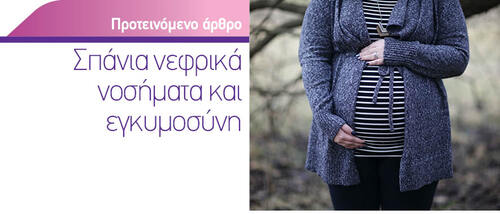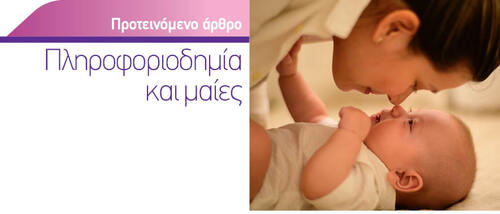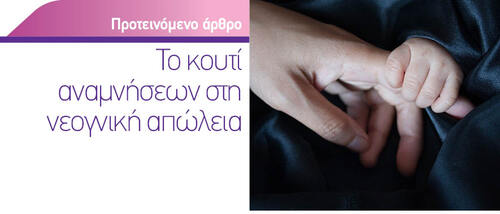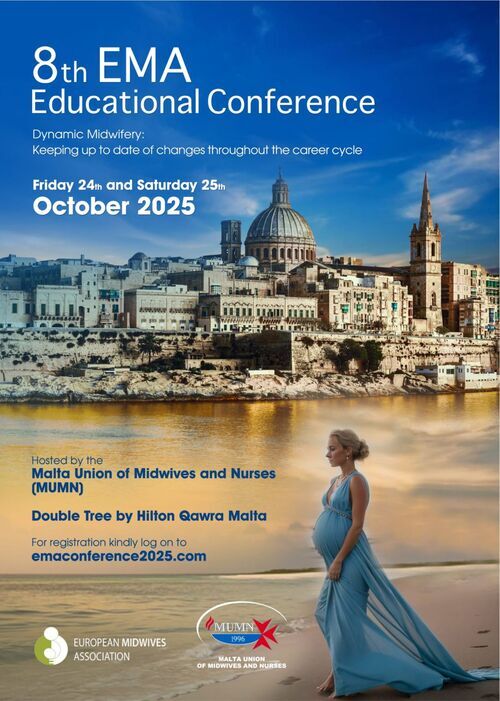Current Issue
Issues
Aim & Scope
Open Access
Indexing
Why publish with us
Contact
Editorial Board
Manuscript Types
Manuscript Formatting
How to submit
For readers
For librarians
Authorship & COI
Principles of Transparency Checklist
Publication Ethics and Publication Malpractice Statement
CrossMark
Data Policies
Manuscript Types
ELEFTHO considers the following types of articles:
Research Papers – reports of data from original research.
Systematic Review Papers – comprehensive, authoritative, reviews within the journal's scope.
Short Reports – brief reports of data from original research.
Methodology Papers – papers that present different methodological approaches that can be used to investigate problems in a relevant scientific field and to encourage innovation.
Case Reports – reports and data from interesting cases.
Study Protocols – articles describing a research protocol of a study.
Letters to the Editor – a response to authors of an original publication, or a very small article that may be relevant to readers.
Editorials – invited articles, or articles written by members of the Editorial Board.
Research Papers
Articles reporting research may be full length or brief reports. These should report original research findings within the journal's scope. Papers should generally be a maximum of 4000 words in length, excluding 5 tables, references, and abstract and key points of the article, whilst it is recommended that the number of references should not exceed 30.
Systematic Review Papers
Comprehensive, authoritative, reviews within the journal's scope. There are two types of review papers:
- systematic review papers: respond to a specific research question, accrue from a criterion-based selection of sources, including a quantitative synthesis and a statistical method (meta-analysis), and should adhere to PRISMA guidelines. Guidelines used for abstracting data and assessing data quality and validity should be noted in the ''Methods" section.
- narrative review papers: the research question may be broad, and the scope of this review is to discuss a specific topic and keep the readers up-to-date about it. This type of review does not necessarily include a methodological approach and its synthesis is usually qualitative. Narrative reviews should include in a developments section, with details regarding data sources used, keywords applied, time restrictions and study types selected. Developments should be based on actual review articles.
All review papers should be generally less than 6000 words, excluding abstract, tables, figures and references. References should not exceed 40. The conclusion of the reviews should be specific and stem from the findings.
Short Reports
Brief reports of data from original research. Short reports are shorter versions of original articles, may include one table or figure, should not exceed 1500 words, and it is recommended that the number of references should not exceed 15. Short reports are suitable for the presentation of research that extends previously published research, including the reporting of additional controls and confirmatory results in other settings, as well as negative results. Authors must clearly acknowledge any work upon which they are building, both published and unpublished.
Methodology Papers
Methodology papers will present different methodological approaches that can be used to investigate problems in a relevant scientific field and to encourage innovation. It is suggested that case studies or practical examples, which can be existing ones, are included to demonstrate the consistency and applicability of the methodology.
Methodology papers should be generally less than 6000 words, excluding abstract, tables, figures and references. References should not exceed 40.
Case Reports
The purpose of this type of short article is to promote regional activities of academic obstetrics, maternal and child health and to provide a forum for the exchange of ideas, examples of policy activities, for individuals working in the field to present their regional successes or challenges in the field of Obstetrics. Such short articles should be accompanied by high resolution images or examples of the material used or presented. The number of words for the text should not exceed 1500 words.
Study Protocols
Articles describing a research protocol of a study. This article type can be for proposed or for ongoing research and should contain the background, research hypothesis, rationale a detailed methodology of the study. The SPIRIT 2013 Checklist guidelines ideally should be applied. Study protocols submitted for publication must have received ethics approval. Protocols of randomized trials should follow the CONSORT guidelines and must have a trial registration number, while observational studies should follow STROBE guidelines.
Letters To The Editor
A letter to the Editor is a brief report that is within the journal's scope and of particular interest to the community, but not suitable as a standard research article. A maximum of ten articles may be included in the references. Letters to the Editor may be edited for clarity or length and may be subject to peer review at the Editors' discretion. To contribute, please contact the Editors. Letters intended for publication should be a maximum of 500 words, contain 10 references, and up to one table or figure. These rules apply to research letters, and letters that respond to articles published in the journal. Letters to the editor are subject to editorial editing so as to streamline the article with the journal's style. Corrections to published articles are also published as a letter and linked to the corrected version of the article.
Editorials
Editorials are written by members of the Editorial Board, or after an invitation, and may reflect current articles within ELEFTHO or discuss significant national or international projects or initiatives.
Subject area and content
The purpose of the magazine ELEFTHO is to give the opportunity to scientists in the field to express themselves through publications, to exchange views, and to be informed about new data, thus contributing to the circulation and transmission of knowledge.
The topics of interest are:
Research Papers
Articles reporting research may be full length or brief reports. These should report original research findings within the journal's scope. Papers should generally be a maximum of 4000 words in length, excluding 5 tables, references, and abstract and key points of the article, whilst it is recommended that the number of references should not exceed 30.
Systematic Review Papers
Comprehensive, authoritative, reviews within the journal's scope. There are two types of review papers:
- systematic review papers: respond to a specific research question, accrue from a criterion-based selection of sources, including a quantitative synthesis and a statistical method (meta-analysis), and should adhere to PRISMA guidelines. Guidelines used for abstracting data and assessing data quality and validity should be noted in the ''Methods" section.
- narrative review papers: the research question may be broad, and the scope of this review is to discuss a specific topic and keep the readers up-to-date about it. This type of review does not necessarily include a methodological approach and its synthesis is usually qualitative. Narrative reviews should include in a developments section, with details regarding data sources used, keywords applied, time restrictions and study types selected. Developments should be based on actual review articles.
All review papers should be generally less than 6000 words, excluding abstract, tables, figures and references. References should not exceed 40. The conclusion of the reviews should be specific and stem from the findings.
Short Reports
Brief reports of data from original research. Short reports are shorter versions of original articles, may include one table or figure, should not exceed 1500 words, and it is recommended that the number of references should not exceed 15. Short reports are suitable for the presentation of research that extends previously published research, including the reporting of additional controls and confirmatory results in other settings, as well as negative results. Authors must clearly acknowledge any work upon which they are building, both published and unpublished.
Methodology Papers
Methodology papers will present different methodological approaches that can be used to investigate problems in a relevant scientific field and to encourage innovation. It is suggested that case studies or practical examples, which can be existing ones, are included to demonstrate the consistency and applicability of the methodology.
Methodology papers should be generally less than 6000 words, excluding abstract, tables, figures and references. References should not exceed 40.
Case Reports
The purpose of this type of short article is to promote regional activities of academic obstetrics, maternal and child health and to provide a forum for the exchange of ideas, examples of policy activities, for individuals working in the field to present their regional successes or challenges in the field of Obstetrics. Such short articles should be accompanied by high resolution images or examples of the material used or presented. The number of words for the text should not exceed 1500 words.
Study Protocols
Articles describing a research protocol of a study. This article type can be for proposed or for ongoing research and should contain the background, research hypothesis, rationale a detailed methodology of the study. The SPIRIT 2013 Checklist guidelines ideally should be applied. Study protocols submitted for publication must have received ethics approval. Protocols of randomized trials should follow the CONSORT guidelines and must have a trial registration number, while observational studies should follow STROBE guidelines.
Letters To The Editor
A letter to the Editor is a brief report that is within the journal's scope and of particular interest to the community, but not suitable as a standard research article. A maximum of ten articles may be included in the references. Letters to the Editor may be edited for clarity or length and may be subject to peer review at the Editors' discretion. To contribute, please contact the Editors. Letters intended for publication should be a maximum of 500 words, contain 10 references, and up to one table or figure. These rules apply to research letters, and letters that respond to articles published in the journal. Letters to the editor are subject to editorial editing so as to streamline the article with the journal's style. Corrections to published articles are also published as a letter and linked to the corrected version of the article.
Editorials
Editorials are written by members of the Editorial Board, or after an invitation, and may reflect current articles within ELEFTHO or discuss significant national or international projects or initiatives.
Subject area and content
The purpose of the magazine ELEFTHO is to give the opportunity to scientists in the field to express themselves through publications, to exchange views, and to be informed about new data, thus contributing to the circulation and transmission of knowledge.
The topics of interest are:
- Prenatal care
- Parenthood Preparation (motherhood-fatherhood)
- Pregnancy care
- Physical, physiological childbirth
- High risk pregnancy
- Postnatal care
- Neonatal care
- Protection, promotion and support of Breastfeeding
- Neonatal- Pediatric topics
- Woman’ care through her life circle
- Genetics
- Sociological topics concerning Midwifery and women’s care
- Psychological topics concerning Midwifery and women’s care
- Obstetrics and Gynecology
- Technology in Midwifery
- Technology in Obstetrics and Gynecology
- History of Midwifery
- General topics (Nutrition, physical activity, Public Health)
- Infertility and reproduction
- Family Planning
- District Midwifery and women’ care
- Midwifery Deontology and Laws
We process personal data collected when visiting the website. The function of obtaining information about users and their behavior is carried out by voluntarily entered information in forms and saving cookies in end devices. Data, including cookies, are used to provide services, improve the user experience and to analyze the traffic in accordance with the Privacy policy. Data are also collected and processed by Google Analytics tool (more).
You can change cookies settings in your browser. Restricted use of cookies in the browser configuration may affect some functionalities of the website.
You can change cookies settings in your browser. Restricted use of cookies in the browser configuration may affect some functionalities of the website.






